 With every new economic and cultural trend, whether it’s the latest fad like fidget-spinners, or a change on the global market scale – the best businesses adapt and evolve to survive and thrive. Likewise, in order to keep up with these changes business professionals also need to adapt, by improving their skill sets and constantly seeking out new information.
With every new economic and cultural trend, whether it’s the latest fad like fidget-spinners, or a change on the global market scale – the best businesses adapt and evolve to survive and thrive. Likewise, in order to keep up with these changes business professionals also need to adapt, by improving their skill sets and constantly seeking out new information.
There was a time when pursuing further education while working a steady job was simply impossible. But that’s no longer the case. As distance education becomes more accepted and popular, distance education programs have had to keep pace with student demands. Today, working professionals can further their education through flexible Online Executive MBA programs while still having a fixed workday schedule. What follows are 10 of the best online programs.
Featured Schools
Methodology
- Affordability (1/3):
- Average indebtedness of program graduates in the last calendar year.
- Percentage of graduates who needed to take on student loan debt.
- Support Services (1/3):
- Online-specific flexibility, accessibility and support measures for online and non-traditional students
- Quality Classes (1/3):
- The average class size
- The percentage of faculty with terminal degrees in their field
1. Washington State University
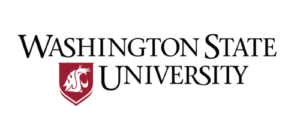 WSU is a public research university located in Pullman, Washington, and was founded in 1890 as Washington’s original land-grant university. As of this year it has a total student enrollment of over 30,000. Through its colleges of Agricultural, Human, and Natural Resource Sciences, Arts and Sciences, Business, Honors, Communication, Education, Engineering and Architecture, Medicine, Nursing, Pharmacy, and Veterinary Medicine – Washington State University offers a wide variety of programs for students to choose from. For undergraduates, it currently offers 95 majors, 86 minors, and over 100 in-major specializations. While graduate students can choose from 79 master’s programs and 63 doctorate programs. For 2017, U.S. News and World Report ranked WSU 143rd among national universities, and 27th for Best Online MBA Programs.
WSU is a public research university located in Pullman, Washington, and was founded in 1890 as Washington’s original land-grant university. As of this year it has a total student enrollment of over 30,000. Through its colleges of Agricultural, Human, and Natural Resource Sciences, Arts and Sciences, Business, Honors, Communication, Education, Engineering and Architecture, Medicine, Nursing, Pharmacy, and Veterinary Medicine – Washington State University offers a wide variety of programs for students to choose from. For undergraduates, it currently offers 95 majors, 86 minors, and over 100 in-major specializations. While graduate students can choose from 79 master’s programs and 63 doctorate programs. For 2017, U.S. News and World Report ranked WSU 143rd among national universities, and 27th for Best Online MBA Programs.
Designed for working professionals, the Online Executive MBA program from Washington State University is offered entirely online and can be completed in as few as 18 months. The 44 credit-hour program focuses on strategy, innovation, and leadership in order to prepare students for more than simply working in the world of business; it prepares them to be leaders and pioneers. Applicants should have at minimum a 3.0 GPA on a 4.0 scale, in addition – applicants typically submit a GMAT score of 550 or better, though the GMAT requirement can be waived for qualified candidates. Online EMBA students at WSU are offered the opportunity for international field study through a 10-day residency overseas. Previous trips have included Shanghai and Beijing, and afforded students the chance to visit businesses such as Nike, Boeing, and Porsche. EMBA students are also free to participate in the annual Leadership Conference from WSU’s Carson College of Business, which offers students further educational opportunities while networking with other students, alumni, and faculty.
- Homepage
- Average Indebtedness of Graduates: $35,577
2. Bethel University
 Bethel University is a private Christian University located in McKenzie, Tennessee. Since its founding in McLemoresville, Tennessee in 1842, Bethel University has grown to include six satellite campuses in Tennessee: Chattanooga, Clarksville, Paris, Memphis, Jackson, and Nashville – as well as outreach areas in Knoxville and Kentucky. As of 2016, Bethel had just under 6,000 students enrolled, who were taught by 178 full-time and 321 part-time faculty members and graduate assistants. Bethel University is accredited by the Southern Association of Colleges and Schools Commission on Colleges (SACSCOC). For eligible students, the university offers a military and veteran undergraduate and graduate tuition reduction waiver.
Bethel University is a private Christian University located in McKenzie, Tennessee. Since its founding in McLemoresville, Tennessee in 1842, Bethel University has grown to include six satellite campuses in Tennessee: Chattanooga, Clarksville, Paris, Memphis, Jackson, and Nashville – as well as outreach areas in Knoxville and Kentucky. As of 2016, Bethel had just under 6,000 students enrolled, who were taught by 178 full-time and 321 part-time faculty members and graduate assistants. Bethel University is accredited by the Southern Association of Colleges and Schools Commission on Colleges (SACSCOC). For eligible students, the university offers a military and veteran undergraduate and graduate tuition reduction waiver.
Bethel University’s Online Executive MBA program consists of eight required courses, three seminars, two electives, and a six credit-hour research project. All of the courses in the EMBA program are three credit-hours, and the expected time to complete the program is 21 months. Unlike the academic track, the executive track is designed for students with executive experience, and focuses on building upon prior experience through analysis and improved decision making. Among the program’s required courses are: Organizational Behavior, Statistical Analysis, Business Ethics, and Strategy and Managerial Decision Making. Applicants must submit two professional references, a professional resume, and a 500-word essay on “Why I Would Like to Obtain an MBA Degree and How I Plan to Utilize My Degree Upon Completion of the Program.”
- Homepage
- Average Indebtedness of Graduates: $37,853
3. St. Joseph’s College
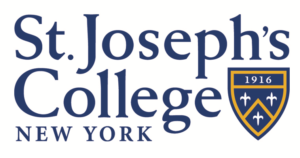 Located in Brooklyn, New York, St. Joseph’s College is a private liberal arts college. Originally founded in 1916 as St. Joseph’s College for Women, the university is today a coeducational institution with over 5,000 enrolled students. With a full-time faculty of 164, and a part-time faculty of 385, the university enjoys the relatively low student-to-faculty ratio of 14 to 1 and an average class size of only 13. St. Joseph’s College is accredited by the New England Association of Schools & Colleges, and currently offers over 50 undergraduate majors and pre-professional and certificate programs, as well as graduate degrees in business, health care management, nursing, human services, accounting, education, and management. Besides the on-campus programs, SJC Online offers programs in nine different areas of study: Applied Behavioral Analysis, Business, Criminal Justice, Health Administration, Human Resources, General Studies, Human Services, Psychology and Business, and Religious Studies. In 2017 U.S. News and World Report ranked St. Joseph’s College 44th for Best Universities for Veterans, and 33rd for Best Value Schools.
Located in Brooklyn, New York, St. Joseph’s College is a private liberal arts college. Originally founded in 1916 as St. Joseph’s College for Women, the university is today a coeducational institution with over 5,000 enrolled students. With a full-time faculty of 164, and a part-time faculty of 385, the university enjoys the relatively low student-to-faculty ratio of 14 to 1 and an average class size of only 13. St. Joseph’s College is accredited by the New England Association of Schools & Colleges, and currently offers over 50 undergraduate majors and pre-professional and certificate programs, as well as graduate degrees in business, health care management, nursing, human services, accounting, education, and management. Besides the on-campus programs, SJC Online offers programs in nine different areas of study: Applied Behavioral Analysis, Business, Criminal Justice, Health Administration, Human Resources, General Studies, Human Services, Psychology and Business, and Religious Studies. In 2017 U.S. News and World Report ranked St. Joseph’s College 44th for Best Universities for Veterans, and 33rd for Best Value Schools.
SJC’s Executive Master of Business Administration program was designed for students with significant work experience. The 36-credit hour program consists of 12 three-credit hour courses, which encompass topics that those in the business world are sure to encounter, such as: Legal Issues in Management, Financial Accounting and Analysis, Operations and Quality Management, and Marketing Concepts and Strategies. The program focuses on learning to apply graduate level theory to real world issues and situations.
- Homepage
- Average Indebtedness of Graduates: $36,242
4. University of Nevada – Reno
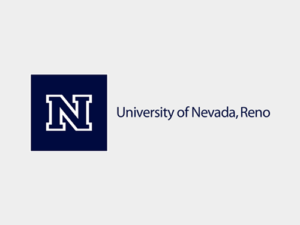 This public research university was originally founded in Elko, Nevada, some 300 miles from its present location in Reno. Since its establishment in 1874, the University of Nevada at Reno has grown to become one of the state’s leading schools. Today the university is home to over 21,000 students, and offers more than 145 degree programs between its colleges of Agriculture, Biotechnology and Natural Resources, Business, Education, Engineering, Journalism, Liberal Arts, Medicine, and Graduate School. Ranking among the top 150 research universities in the country, UNR has over 60 research centers and facilities, including the Nevada Terrawatt Facility and the Nevada Seismological Laboratory. Besides its many on-campus learning opportunities, the university also provides students the chance to study abroad, with programs in 27 countries and over 50 cities. For those seeking a more flexible learning environment, the university offers over 200 online courses each year, allowing students and working professionals the chance to continue their education as their schedule permits.
This public research university was originally founded in Elko, Nevada, some 300 miles from its present location in Reno. Since its establishment in 1874, the University of Nevada at Reno has grown to become one of the state’s leading schools. Today the university is home to over 21,000 students, and offers more than 145 degree programs between its colleges of Agriculture, Biotechnology and Natural Resources, Business, Education, Engineering, Journalism, Liberal Arts, Medicine, and Graduate School. Ranking among the top 150 research universities in the country, UNR has over 60 research centers and facilities, including the Nevada Terrawatt Facility and the Nevada Seismological Laboratory. Besides its many on-campus learning opportunities, the university also provides students the chance to study abroad, with programs in 27 countries and over 50 cities. For those seeking a more flexible learning environment, the university offers over 200 online courses each year, allowing students and working professionals the chance to continue their education as their schedule permits.
Ranked 36th by U.S. News and World Report for Best Online MBA Programs, the online EMBA program from UNR requires that its students complete their degree in two years. This two-year cohort program consists of 12 courses that are spread out over the course of six semesters – the fall, spring, and summer semesters of each year. Each class spans 12 weeks, and while all coursework can be completed entirely online, students are required to complete a proctored exam. The Executive MBA program is only open to students who hold a bachelor’s degree from an accredited four-year institution, though the major need not be business. Applicants must have at least a 2.75 GPA on a 4.0 scale, as well as having a minimum of five years professional work experience beyond their undergraduate work. Finally, applicants are required to provide results of the Graduate Management Admission Test (GMAT) or Graduate Record Examination (GRE).
5. University of North Carolina
 Founded in 1789, the University of North Carolina at Chapel Hill was officially the first public university in the United States, and was the only public university to award degrees in the 18th century. While many mentions of UNC are referring specifically to the founding campus at Chapel Hill, the University of North Carolina is actually a university system comprised of 17 campuses. Today, the university has a total enrollment of over 29,000 while maintaining a student-to-faculty ratio of only 13 to 1. Through 14 schools and the College of Arts and Sciences UNC currently offers 78 bachelor’s, 112 master’s, 68 doctorate and seven professional degree programs. As a research university Carolina stands proud as the 11th largest U.S. research university in research volume and annual expenditures, investing $967 million in research activity annually. In 2016, UNC ranked 3rd for Best Public University in the Wall Street Journal/Times Higher Education rankings. U.S. News and World Report ranks the university 30th for National Universities, 5th for Top Public Schools, 9th for Business Programs, and 4th for Best Online MBA Programs.
Founded in 1789, the University of North Carolina at Chapel Hill was officially the first public university in the United States, and was the only public university to award degrees in the 18th century. While many mentions of UNC are referring specifically to the founding campus at Chapel Hill, the University of North Carolina is actually a university system comprised of 17 campuses. Today, the university has a total enrollment of over 29,000 while maintaining a student-to-faculty ratio of only 13 to 1. Through 14 schools and the College of Arts and Sciences UNC currently offers 78 bachelor’s, 112 master’s, 68 doctorate and seven professional degree programs. As a research university Carolina stands proud as the 11th largest U.S. research university in research volume and annual expenditures, investing $967 million in research activity annually. In 2016, UNC ranked 3rd for Best Public University in the Wall Street Journal/Times Higher Education rankings. U.S. News and World Report ranks the university 30th for National Universities, 5th for Top Public Schools, 9th for Business Programs, and 4th for Best Online MBA Programs.
Designed by UNC Kenan-Flagler’s research teaching faculty, the MBA@UNC program was created with the goal of providing a structured learning environment equal to that of a campus, while allowing students the flexibility to pursue further education despite schedules or locations that might conflict with typical on campus learning. Students are free to attend courses online, and through the use of a webcam students can interact with their teachers face-to-face. Adding to the flexibility of the program, students can even access their coursework through the MBA@UNC mobile app. The 66-credit hour program takes an average of 24 months to complete, though students can complete the program in as little as 18 months or as many as 36, depending on whether they are full-time or part-time.
- Homepage
- Average Indebtedness of Graduates: $69,120
6. Rochester Institute of Technology
 Founded in 1829, the Rochester Institute of Technology is a private university with nine colleges and international locations in Croatia, Dubai, China, and Kosovo. Proud of its diversity, RIT boasts over 16,000 students from all 50 states and from more than 100 countries. In addition to its geographical diversity, the university is also home to the National Technical Institute for the Deaf, and is an internationally recognized leader in providing post-secondary education to the deaf and hard-of-hearing; RIT is currently home to over 1,100 deaf and hard-of-hearing students. Between its nine colleges, the university currently offers 105 undergraduate programs, 83 graduate programs, and 30 professional certificates and advanced certificates. U.S. News and World Report ranks RIT 107th for Best National Universities, and 33rd for both Best Value Schools and Best Online MBA Programs. The university has also been listed as one of the “Top 200 Colleges for Native Americans” in the Society’s Winds of Change magazine six times in a row.
Founded in 1829, the Rochester Institute of Technology is a private university with nine colleges and international locations in Croatia, Dubai, China, and Kosovo. Proud of its diversity, RIT boasts over 16,000 students from all 50 states and from more than 100 countries. In addition to its geographical diversity, the university is also home to the National Technical Institute for the Deaf, and is an internationally recognized leader in providing post-secondary education to the deaf and hard-of-hearing; RIT is currently home to over 1,100 deaf and hard-of-hearing students. Between its nine colleges, the university currently offers 105 undergraduate programs, 83 graduate programs, and 30 professional certificates and advanced certificates. U.S. News and World Report ranks RIT 107th for Best National Universities, and 33rd for both Best Value Schools and Best Online MBA Programs. The university has also been listed as one of the “Top 200 Colleges for Native Americans” in the Society’s Winds of Change magazine six times in a row.
Based on industry research, the Online EMBA program from the Rochester Institute of Technology was designed to go beyond the standard fare of typical MBA programs, instead seeking to engage students on a deeper level than a simple memorization of concepts and theories. While the program is identical to the on-campus program, online students are required to attend a three-day on campus orientation session before classes begin. The 17 month program spreads out 24 required courses over four semesters, with students taking courses every six weeks. Classes are done in weekly sessions and are recorded so that students can go back over the information at their leisure. RIT has actually gone a step beyond the on-campus program by having most online courses with a secondary instructor who hosts additional sessions. Students are required to attend a seven-to-10 day international seminar held towards the end of the program, though all airfare and lodging costs are covered by the program.
7. University of North Alabama College of Business – Florence, Alabama
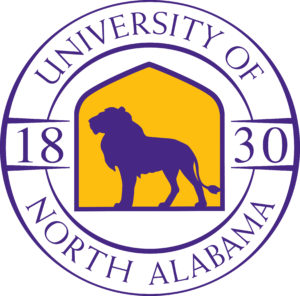 The University of North Alabama is a public coeducational university located in Florence, Alabama. UNA is Alabama’s oldest four-year public university, and has graduated more than 57,000 students since its founding in 1830. With the relatively low student population of only 7,333 UNA has a comparatively high student-to-faculty ratio, of 20 to 1. Over 80% of the classes at the university are taught by the 275 full-time faculty members. As a whole, The University of North Alabama is accredited by the Southern Association of Colleges and Schools Commission on Colleges (SACSCOC) to award bachelor’s, master’s and education specialist degrees. Beyond that, many of the university’s individual programs are independently accredited by the appropriate organizations or licensing agencies, including the Master of Business Administration, which is accredited by AACSB International.
The University of North Alabama is a public coeducational university located in Florence, Alabama. UNA is Alabama’s oldest four-year public university, and has graduated more than 57,000 students since its founding in 1830. With the relatively low student population of only 7,333 UNA has a comparatively high student-to-faculty ratio, of 20 to 1. Over 80% of the classes at the university are taught by the 275 full-time faculty members. As a whole, The University of North Alabama is accredited by the Southern Association of Colleges and Schools Commission on Colleges (SACSCOC) to award bachelor’s, master’s and education specialist degrees. Beyond that, many of the university’s individual programs are independently accredited by the appropriate organizations or licensing agencies, including the Master of Business Administration, which is accredited by AACSB International.
Designed for professionals with a minimum of five years of business experience, the Executive MBA program is one of 10 concentrations offered through the MBA program from the University of North Alabama. The EMBA program consists of seven core classes as well as six electives, coming to a total of 34-credit hours. Applicants to the program are required to present an updated resume showing at least a five-year work history. GMAT and GRE requirements can be waived by providing a resume showing at least three years of “demonstrated responsibility in professional or entrepreneurial positions.”
Featured Schools
8. Pace University
 Originally founded in 1906 as a business school for men and women, Pace University shifted its focus to liberal arts and sciences following World War II. From its humble beginnings in rented facilities, Pace has grown into one of the largest universities in New York State. Today, the university has campuses in New York City and Westchester County, and has a total student enrollment of 13,245. Pace currently offers seven associate’s degrees, 146 bachelor’s degrees, 132 master’s degrees, and 29 doctoral degrees between its six colleges: College of Health Professions, Dyson College of Arts and Sciences, Elisabeth Haub School of Law, Lubin School of Business, School of Education, and Seidenberg School of Computer Science and Information Systems. For 2017, Forbes ranked Pace University 184th for Research Universities, and 309th for Private Colleges. U.S. News and World Report ranked Pace 188th for National universities, and #36 for Best Online Bachelor’s Programs.
Originally founded in 1906 as a business school for men and women, Pace University shifted its focus to liberal arts and sciences following World War II. From its humble beginnings in rented facilities, Pace has grown into one of the largest universities in New York State. Today, the university has campuses in New York City and Westchester County, and has a total student enrollment of 13,245. Pace currently offers seven associate’s degrees, 146 bachelor’s degrees, 132 master’s degrees, and 29 doctoral degrees between its six colleges: College of Health Professions, Dyson College of Arts and Sciences, Elisabeth Haub School of Law, Lubin School of Business, School of Education, and Seidenberg School of Computer Science and Information Systems. For 2017, Forbes ranked Pace University 184th for Research Universities, and 309th for Private Colleges. U.S. News and World Report ranked Pace 188th for National universities, and #36 for Best Online Bachelor’s Programs.
Combining a mix of online courses and weekend residencies, which occur every 10 weeks, the Pace University Executive MBA program affords students the flexibility to earn an MBA while working full-time … and all within a scheduled and structured learning environment. While weekend residencies may be a turn-off for some students, the on-campus time commitment is only 34 days. The weekend residencies run from Friday to Sunday and consist of group discussions, presentations, examinations, as well as a celebratory dinner. The cohort-based program is divided into nine modules, which include both individual assignments as well as collaborative team-based projects.
9. Howard University
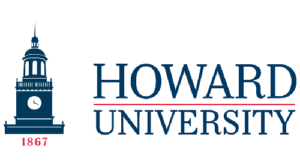
Howard University is a private, nonsectarian, research university located in Washington, D.C. An historically black university, Howard has been ranked as the “top producer of African-American undergraduates who later earn science and engineering doctoral degrees” by the National Science Foundation. In its 150 years of operation, Howard University has awarded more than 120,000 degrees and certificates in the arts, sciences, and humanities. Today, Howards 13,000 students pursue degrees in more than 120 areas of study within the university’s 13 schools and colleges. Forbes ranks Howard University 149th for 2017’s Best Research Universities, and 259th for Private Colleges. U.S. News and World Report ranks Howard 124th for National Universities, and #2 for Historically Black Colleges and Universities.
The Executive MBA program from Howard University was designed to serve up and coming professionals, as well as those who are already established in industry. The program focuses on delivering applicable knowledge while forging in the student an understanding of the causes and factors that shape the world of business. The program consists of 15 courses totaling 42- credit hours, and can be completed in as little as 18 months. The courses include: Strategic Communications, Financial Management, and Marketing Strategy, all of which cover the topic from the perspective of leadership. Applicants to the program should preferably have five years of work experience in a management or senior level role.
10. University of Wyoming
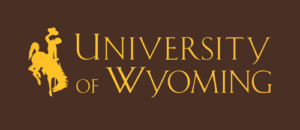 The University of Wyoming officially opened in 1887 with a grand total of 42 students and five faculty members. When it was originally founded in 1886, Wyoming was still a territory. It would take another four years before Wyoming was admitted as the 44th state. Despite its humble beginnings, the University of Wyoming has grown to a total enrollment of over 12,000. UW currently offers over 190 fields of study between the colleges of Arts and Sciences, Agriculture and Natural Resources, Business, Education, Engineering and Applied Science, Health Sciences, Law and the School of Energy Resources. The University of Wyoming has been continuously accredited by the Higher Learning Commission for the last 94 years, with their most recent reaccreditation in 2010. U.S. News and World Report ranks UW 171st for National Universities, and 90th for Top Public Schools.
The University of Wyoming officially opened in 1887 with a grand total of 42 students and five faculty members. When it was originally founded in 1886, Wyoming was still a territory. It would take another four years before Wyoming was admitted as the 44th state. Despite its humble beginnings, the University of Wyoming has grown to a total enrollment of over 12,000. UW currently offers over 190 fields of study between the colleges of Arts and Sciences, Agriculture and Natural Resources, Business, Education, Engineering and Applied Science, Health Sciences, Law and the School of Energy Resources. The University of Wyoming has been continuously accredited by the Higher Learning Commission for the last 94 years, with their most recent reaccreditation in 2010. U.S. News and World Report ranks UW 171st for National Universities, and 90th for Top Public Schools.
Fully accredited by the Association to Advance Collegiate Schools of Business (AACSB) International – the part-time, Online MBA program from the University of Wyoming is tailored to experienced business professionals seeking to further their education while maintaining a full-time work schedule. Admission into the 100 percent online program is incredibly competitive, and in the university’s words “Only top candidates will be considered.” This cohort-based program consists of 30 credits and is should be completed in two years. Rather than unrelated modules that can cause students to lose focus on what they’ve previously learned, courses within the program are designed to build upon one another, ingraining knowledge and allowing students to apply learned theory to real-world situations.
11) Faulkner University
 Faulkner is a private Christian university affiliated with the Churches of Christ. It was founded in 1942, and operates from Montgomery, Alabama. It awards associate, baccalaureate, master’s, a doctorate in humanities, a doctorate in biblical studies, and juris doctor degrees. It serves over 3,300 students and has a very low 11:1 student-to-faculty ratio. According to the school, 96% of Faulkner students are receiving financial aid. USNR ranks Faulkner 106th in the Regional Universities South category for its 2018 ranking.
Faulkner is a private Christian university affiliated with the Churches of Christ. It was founded in 1942, and operates from Montgomery, Alabama. It awards associate, baccalaureate, master’s, a doctorate in humanities, a doctorate in biblical studies, and juris doctor degrees. It serves over 3,300 students and has a very low 11:1 student-to-faculty ratio. According to the school, 96% of Faulkner students are receiving financial aid. USNR ranks Faulkner 106th in the Regional Universities South category for its 2018 ranking.
Faulkner offers an entirely online Executive MBA. It promises new skills and knowledge that can improve your career, and vows to convey its program in a Christian environment. Students will become better managers, and build decision making, marketing, and quantitative reasoning skills. The degree is requires 10 courses and can be completed in a year. It starts twice a year, in January and September. Sample courses include Managerial Accounting, Strategic Management, and Quantitative Analysis. This program was partially included due to its accelerated structure.
12) University of La Verne
 ULV is a private, non-profit university based in La Verne, California. It was established as Lordsburg College in 1891, and has seven regional campuses in addition to its online wing. It conveys undergraduate, graduate and doctoral degrees through colleges of Arts & Sciences, Business & Public Management, Education, and Law. USNR ranked La Verne 8th among private institutions in California and 18th overall in the state in its 2017 rankings. Over 8,300 students attend La Verne, which has a 15:1 student-to-faculty ratio. The school is a proponent of student choice, especially in whether they take classes on campus or online.
ULV is a private, non-profit university based in La Verne, California. It was established as Lordsburg College in 1891, and has seven regional campuses in addition to its online wing. It conveys undergraduate, graduate and doctoral degrees through colleges of Arts & Sciences, Business & Public Management, Education, and Law. USNR ranked La Verne 8th among private institutions in California and 18th overall in the state in its 2017 rankings. Over 8,300 students attend La Verne, which has a 15:1 student-to-faculty ratio. The school is a proponent of student choice, especially in whether they take classes on campus or online.
La Verne offers a MBA program for Experienced Professionals, which is another way of phrasing an Executive MBA program. It comes in many concentrations (a big part of its inclusion on this list). It is designed for adult professionals who have at least three years of professional experience and an undergraduate degree from an accredited school. Concentrations for the program include Accounting, Finance, Health Services Management, Information Technology, International Business, Management and Leadership, Marketing, and Supply Chain Management. Not all of these concentrations may be offered online. Foundational courses include Accounting Fundamentals, Economics for Decision-Making, Quantitative and Statistical Analysis, Business Finance, and Business Marketing.
13) Texas Southern University
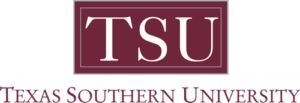 TSU is a historically black university based out of Houston, Texas. It’s one of the It was founded in 1927, originally as the “Houston Colored Junior College,” and was renamed TSU in 1951. Forbes has named it one of America’s best colleges and best values. It has over 8,800 students, and an 18:1 student-to-faculty ratio. It conveys over a hundred different Bachelor’s, Master’s and Doctoral degrees through 11 schools and colleges. Washington Monthly ranked in 201st among National Universities in 2016. Part of why it was included on this list is due to the number of tracks in its EMBA program.
TSU is a historically black university based out of Houston, Texas. It’s one of the It was founded in 1927, originally as the “Houston Colored Junior College,” and was renamed TSU in 1951. Forbes has named it one of America’s best colleges and best values. It has over 8,800 students, and an 18:1 student-to-faculty ratio. It conveys over a hundred different Bachelor’s, Master’s and Doctoral degrees through 11 schools and colleges. Washington Monthly ranked in 201st among National Universities in 2016. Part of why it was included on this list is due to the number of tracks in its EMBA program.
TSU’s Executive MBA program consists of 12 classes and 36 credits. Usually, students take two classes per semester (six credit hours) for six semesters. Students are considered full time students when following this schedule. The program is aimed at teaching students advanced concepts in strategy, leadership, accountability and managerial decision making. TSU’s program has been vetted by their local business community, which may help post-graduate employment. The program comes in two tracks: Energy Finance and General Business. Textbooks and an optional international business trip are calculated into the cost of tuition for this program.
14) University of Virginia
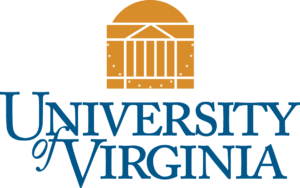 UVA is a public research university and the flagship of the state. It was founded in 1819 by Thomas Jefferson. Nearly 24,000 students attend the school, which somehow pulls off a 15:1 student-to-faculty ratio. It offers 121 majors (48 bachelor’s degrees, 94 master’s degrees, 55 doctoral degrees, 6 educational specialist degrees, and two professional degrees) through eight undergraduate and three graduate schools. In 2017 USNR ranked UVA 24th overall and 2nd among public universities. It also ranked UVA’s Darden School of Business 11th overall and 2nd among public universities.
UVA is a public research university and the flagship of the state. It was founded in 1819 by Thomas Jefferson. Nearly 24,000 students attend the school, which somehow pulls off a 15:1 student-to-faculty ratio. It offers 121 majors (48 bachelor’s degrees, 94 master’s degrees, 55 doctoral degrees, 6 educational specialist degrees, and two professional degrees) through eight undergraduate and three graduate schools. In 2017 USNR ranked UVA 24th overall and 2nd among public universities. It also ranked UVA’s Darden School of Business 11th overall and 2nd among public universities.
Darden’s distance learning Executive MBA comes in two concentrations: EMBA and Global EMBA. The backbone classes in these programs include Business Ethics, Accounting for Managers, Decision Analysis, Global Economics and Markets, and much more. Sample electives include Leadership Coaching, Starting New Ventures, Strategy Execution, Entrepreneurial Finance and Competitive Dynamics. Elective offerings do vary from year to year. Darden utilizes shared screens with faculty and peers to deliver a more interactive online degree experience. Students also participate in live discussions through conference calls and regularly comment and ask questions in real time as part of this program.
15) University of Dayton
 UD is a private Catholic national research school that’s based out of Dayton, Ohio. It’s the second-largest private university in the state. The school was founded in 1850, and currently serves just over 10,800 students (15:1 student to faculty ration). It conveys Bachelor’s, Master’s and Doctoral degrees. It has academic programs in arts and sciences, business administration, education and health sciences, engineering, and law. In 1988 it became the first university in the country to offer an undergraduate degree in human rights. The school is known for the large number of patents that have been assigned to it (over 150). These include the invention of the Domino’s Pizza hotbed, a self-healing wire, and a “smart” dipstick that can measure properties of oils used in cooking, cars and aircraft. The school is also known for funding its students businesses through its L. William Crotty Center for Entrepreneurial Leadership.
UD is a private Catholic national research school that’s based out of Dayton, Ohio. It’s the second-largest private university in the state. The school was founded in 1850, and currently serves just over 10,800 students (15:1 student to faculty ration). It conveys Bachelor’s, Master’s and Doctoral degrees. It has academic programs in arts and sciences, business administration, education and health sciences, engineering, and law. In 1988 it became the first university in the country to offer an undergraduate degree in human rights. The school is known for the large number of patents that have been assigned to it (over 150). These include the invention of the Domino’s Pizza hotbed, a self-healing wire, and a “smart” dipstick that can measure properties of oils used in cooking, cars and aircraft. The school is also known for funding its students businesses through its L. William Crotty Center for Entrepreneurial Leadership.
Dayton offers an Advanced Standing MBA, which requires 13 courses, 30 credits, 2 immersions, and can be completed in a year. The program is for students who have earned an undergraduate business degree within the last seven years and are able to take 7.5 credits per term. Students may also complete the program at a slower pace if they choose to (between 12 and 60 months). This program will build advanced skills in Economics, Analysis, Finance, Marketing, and much more. Dayton’s online learning program includes weekly live online classes via webcam, a mobile app with a flexible offline mode, self-paced multimedia course work, in person immersions to build a professional network, and more support services to ensure student satisfaction.
16) University of Arkansas
 Also known as U of A, UARK, or UA, this public, doctoral research university is the flagship school of the University of Arkansas System. It offers over 200 undergraduate, graduate and professional programs, and has been classified by the Carnegie Foundation as a research university of the highest order. It was founded in 1871, and is located in Fayetteville, Arkansas. Currently UARK serves nearly 27,200 students, and offers an 18:1 student-to-faculty ratio. It’s known for its superb programs in architecture, agriculture, business, communication disorders, creative writing, history, law, and Middle Eastern studies. In 2017, it placed 133rd on USNR’s National Universities ranking. They also ranked its Sam M. Walton College of Business at 34th among top public business school in the nation, and 59th amongst all public and private schools.
Also known as U of A, UARK, or UA, this public, doctoral research university is the flagship school of the University of Arkansas System. It offers over 200 undergraduate, graduate and professional programs, and has been classified by the Carnegie Foundation as a research university of the highest order. It was founded in 1871, and is located in Fayetteville, Arkansas. Currently UARK serves nearly 27,200 students, and offers an 18:1 student-to-faculty ratio. It’s known for its superb programs in architecture, agriculture, business, communication disorders, creative writing, history, law, and Middle Eastern studies. In 2017, it placed 133rd on USNR’s National Universities ranking. They also ranked its Sam M. Walton College of Business at 34th among top public business school in the nation, and 59th amongst all public and private schools.
UARK’s online Executive MBA helps students learn the ins and outs of supply chains, finance, business analytics, innovation, entrepreneurship, and retail. It requires 38 credit hours, and can be completed in 24 months. The program is mostly online, but requires on-campus attendance one Saturday each month. This program comes in two concentrations: the healthcare administration concentration which is offered in conjunction with the U of A Medical Sciences program, and the Walton Executive MBA. Walton College is in the center of a retail district, and its program reflects the value chain and consumer goods industry.
17) Naval Postgraduate School
 NPS is a graduate school run by the US Navy in Monterey, CA. It grants Master’s, Engineer’s and Doctoral degrees. It was founded in 1909, and currently serves over 2,680 students. The student body is mostly made up of active-duty officers from the US military, although civilians and members of foreign militaries may also matriculate. The school has twelve departments. Top ones includeBusiness & Public Policy, Engineering & Applied Sciences, Operational & Information Sciences, Graduate Studies, Arts, and Homeland Defense and Security. The school’s focus is education and research that increases combat effectiveness of Naval officers.
NPS is a graduate school run by the US Navy in Monterey, CA. It grants Master’s, Engineer’s and Doctoral degrees. It was founded in 1909, and currently serves over 2,680 students. The student body is mostly made up of active-duty officers from the US military, although civilians and members of foreign militaries may also matriculate. The school has twelve departments. Top ones includeBusiness & Public Policy, Engineering & Applied Sciences, Operational & Information Sciences, Graduate Studies, Arts, and Homeland Defense and Security. The school’s focus is education and research that increases combat effectiveness of Naval officers.
NPS offers an Executive MBA program that can be completed online. It’s a part-time program that takes 24 months to complete. Typically, groups of 25 students meet one day a week for 6-7 hours. It also requires a one-week residency on campus in Monterey before the first quarter of classes begin. In the second year there’s another one week residency as well. Students will learn management fundamentals, financial management, build analytical and communication skills, and conduct interpersonal interactions and team projects to foster group learning and growth.
18) George Mason University
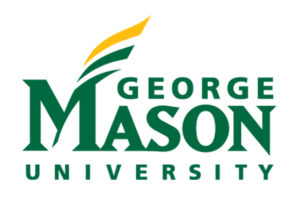
George Mason University is the largest public research university in Virginia. It was founded in 1949. Mason is known for its business, economics, law, creative writing and computer science programs, which have all been recognized as top research programs by the Carnegie Classification of Institutions of Higher Education. It has consistently been highly ranked both nationally and globally by the Academic Ranking of World Universities, Forbes, and USNR. Over 34,900 students attend Mason, which offers a 16:1 student to faculty ratio. 11% of its graduate students take distance learning programs.
GMU’s MBA program requires 48 credits and can be taken entirely online. Students also have a Global Residency option in the program, where they can choose to spend a week abroad visiting and studying foreign companies and completing a team project. This program is aimed at giving graduates a wide skill base and global perspective on problems businesses face. Students will build communication, leadership and analytical skills while learning about foundational business decisions and disciplines, and modern business issues. After taking foundational MBA classes, students choose from elective courses like Corporate Financial Policy, Marketing Research, Entrepreneurship, Data Mining for Business Analytics and more.
19) California State University – Monterey Bay
 CSUMB is a public university and member of the 23-campus California State University. It was founded in 1994. Currently there are nearly 7,300 students and a 23:1 student-to-faculty ratio. CSUMB conveys 23 Bachelor’s degrees, 7 Master’s degrees, and teaching credentials. Common majors include business administration, psychology, biology, kinesiology and human connection. Over a third of the student body come from the Monterey, Santa Cruz and San Benito counties. CSUMB is also noted for its research in coral reef monitoring, land use, carbon modeling and disease transmission. Approximately 50% of the student body takes classes online.
CSUMB is a public university and member of the 23-campus California State University. It was founded in 1994. Currently there are nearly 7,300 students and a 23:1 student-to-faculty ratio. CSUMB conveys 23 Bachelor’s degrees, 7 Master’s degrees, and teaching credentials. Common majors include business administration, psychology, biology, kinesiology and human connection. Over a third of the student body come from the Monterey, Santa Cruz and San Benito counties. CSUMB is also noted for its research in coral reef monitoring, land use, carbon modeling and disease transmission. Approximately 50% of the student body takes classes online.
CSUMB offers an online MBA that builds ethical reasoning, critical thinking, understanding and incorporating diversity, communication skills, decision making and more. Students may qualify for a $3000 scholarship in this program. It comes in two tracks, executive and traditional. The program aims to build students “soft skills” like teamwork and leadership while giving them a practical, factual foundation in economics, finance, marketing and management. The program’s next beginning date is July 16th and students must apply by May 29th.
20) University of Hawaii Manoa
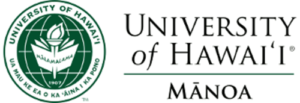 U.H. is a research university and the flagship campus of the University of Hawaii. The school offers bachelor’s degrees in 93 fields of study, master’s degrees in 84 fields, doctoral degrees in 51 fields, first professional degrees in 5 fields, post-baccalaureate degrees in 3 fields, 28 undergraduate certification programs and 29 graduate certification programs. It serves over 18,000 students and offers a cozy 13:1 student-to-faculty ratio. In 2017, USNR ranked the school 169th in its Best National Universities rankings. ARWU ranked it between 62-71 in its Academic Ranking of World Universities.
U.H. is a research university and the flagship campus of the University of Hawaii. The school offers bachelor’s degrees in 93 fields of study, master’s degrees in 84 fields, doctoral degrees in 51 fields, first professional degrees in 5 fields, post-baccalaureate degrees in 3 fields, 28 undergraduate certification programs and 29 graduate certification programs. It serves over 18,000 students and offers a cozy 13:1 student-to-faculty ratio. In 2017, USNR ranked the school 169th in its Best National Universities rankings. ARWU ranked it between 62-71 in its Academic Ranking of World Universities.
U.H. offers a distance learning Executive MBA. It requires 48 credits and was designed to be completed in 22 months. It offers a Health Care Management Track. The program is introduced with a resident module at the UH Manoa campus before allowing students to take online classes that combine business theory with practical applications. The core curriculum includes Data Analytics and Statistics for Business, Marketing Management, Managerial Finance, Leadership and Organizational Behavior, and much more. It also offers a rolling pool of electives that have included Negotiation, Multicultural Management, Marketing Communication and Management, International Financial Management, and more.